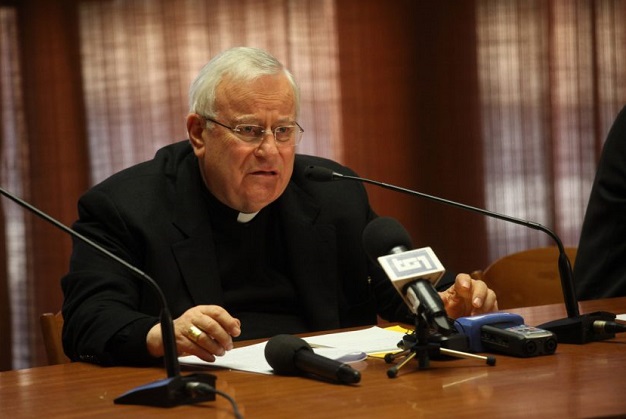“If you don’t like the Pope... become an evangelical”
The words of the president of the Italian Bishops Conference, Cardinal Gualtiero Bassetti, show that evangelicals are often brought into play both from the right and from the left.
29 JANUARY 2020 · 10:26 CET

“If someone does not like this Pope, they can say it because they are free to choose other ways. I said to someone: become evangelical”.
So said the President of the Italian Bishops Conference, Cardinal Gualtiero Bassetti, on the 25th January, on the sidelines of the meeting with journalists in Perugia on the occasion of the patron saint of the category, St. Francis of Sales.
This reference to evangelicals as to Christians without a pope is interesting. Evangelicals are brought into play both from the right and from the left.
Sometimes, Pope Francis, for his unconventional and not dressed up language, is criticized by traditionalists for wanting to transform the church of Rome into a Protestant church. This outcome is seen by these circles as the collapse of Rome. Other times, as is the case with Bassetti - supporter of Pope Francis' line - the pope's conservative critics are referred to the evangelicals. If they don't like this pope, let them become Protestants. In short, from right and left, the evangelicals feel pulled by the jacket.
Some considerations. It is not on Pope Francis that the reason for evangelical diversity is defined in relation to Catholicism. There are good reasons to be evangelical whether the pope was Leo X (as in Luther's time), Pius IX (as in the times of the unification of Italy), or that the pope is Francis.
It is not the pope's personality, the pope's style, the pope's conservative or progressive emphasis that distinguishes the evangelicals from the church in Rome. It is the pope's doctrine that constitutes the problem. Whether there is a Thomist pope (like JP II) or an Augustinian (like B XVI) or a Jesuit (like Francis) doesn't matter. It is the Pope's claim to be “vicar of Christ”, at the top of a structure modeled on an imperial, hierarchical and sacramental form, that is biblically indigestible. And this claim is carved in the dogma of The Roman Catholic Church. This is the irreducible point.
The pope may be sympathetic or approachable, innovator or consolidator, but as long as he is the symbol, guarantor and interpreter of papal theology, he will always be the Roman pontiff at the top of a church that has added to the biblical gospel elements that contradict the gospel and end up polluting it.
The church does not need a Roman pope: Jesus Christ is enough to guide the church. He is the living Lord, through his Word and his Spirit. As stated in the document of the World Evangelical Alliance “An Evangelical Perspective on Roman Catholicism” (1986), “Scripture does not lead to simple corrections of the Catholic doctrine of the papacy, but instead forces us to reject the very idea of the primacy of Peter as the basis of the papal infallibility... Under the sovereign authority of Jesus Christ, we evangelicals try to honor the subordinate role of the people of God in the government of the church through the exercise of the ministry of all believers”.
One does not become evangelical because there is now Francis or before there was Benedict, but for the reasons of the gospel which, for example and among other things, exclude that the church needs a Roman pope to be such.
Leonardo De Chirico, theologian and evangelical pastor in Rome, Italy.
Published in: Evangelical Focus - Features - “If you don’t like the Pope... become an evangelical”
